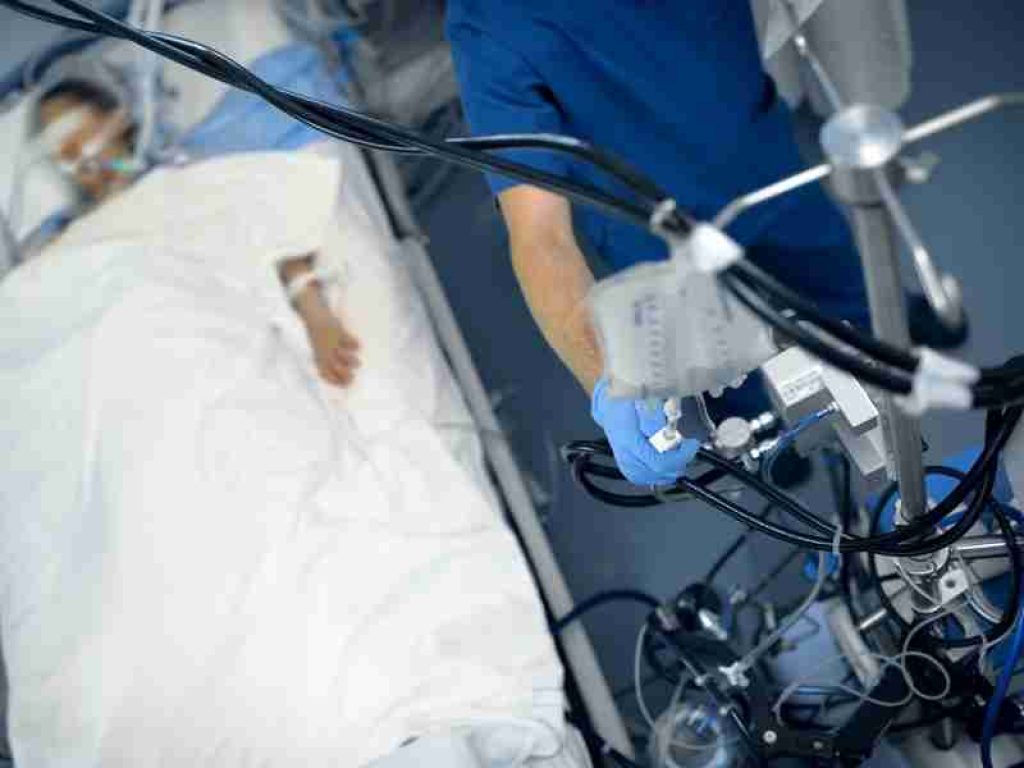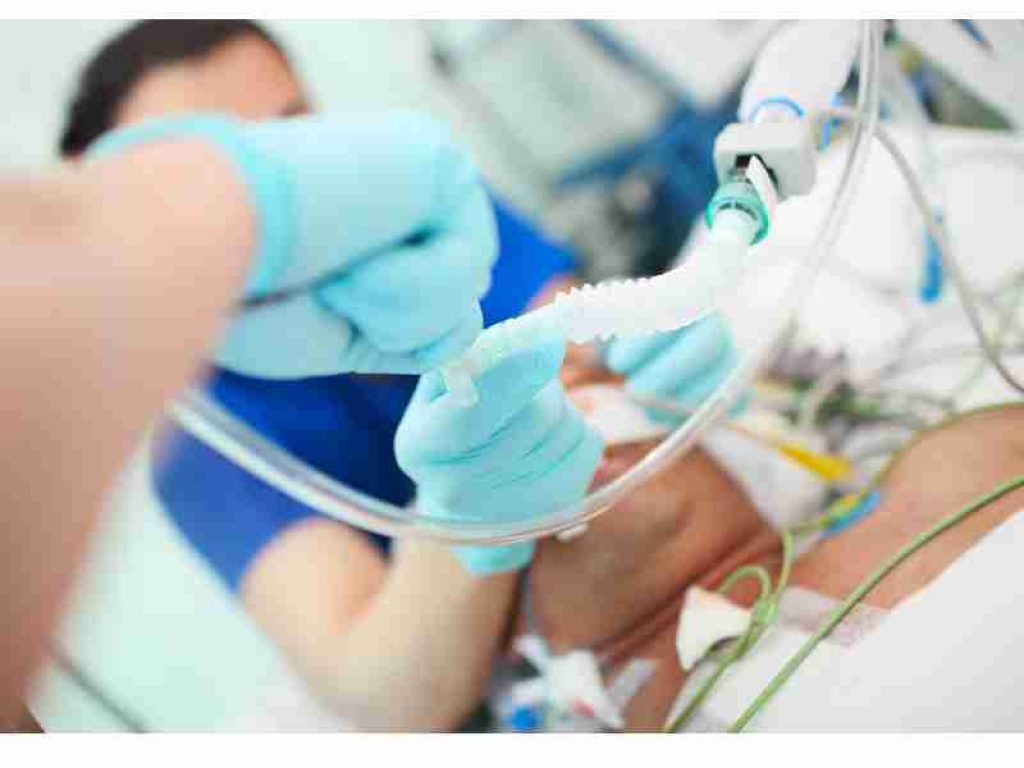
How To Become A Critical Care Nurse?
Critical care nurses are RNs who specialize in working under intense pressure, often with people’s lives on the line. Their expertise, quick thinking, and familiarity with the law are put to the test daily, often deciding between life and death. Some would-be nurses could be put off by such a heavy burden, while others might relish the opportunity to prove themselves.
Like all other nurses, critical care nurses need to be organized, but they may need it more than others. A Critical Care Nurse must have excellent observational skills, pay close attention to detail, and maintain composure in high-stakes situations. All of these traits are what usually make them stand out from the crowd of other nurses.
The mental and emotional toll that Critical Care Nurses must bear is considerable. Therefore, not all would-be nurses would benefit from this area of study.
What is a Critical Care Nurse?
Nurses specializing in critical care treat patients of all ages, from newborns to the elderly, who are in critical physical condition due to illnesses or traumas that could result in death. To assist their patients in getting healthy again, these professionals use highly specialized technical knowledge to evaluate and track their diseases. Critical care nurses provide direct patient care and act as their patients’ champions, standing up for and on their behalf when appropriate.

Due to the severity of their patient’s conditions, critical care nurses typically only care for one or two patients at a time. They often collaborate with a larger healthcare team consisting of doctors, other nurses, and allied health professionals.
What are the Types of Critical Care Nurses?
Several specialties are available for critical care nurses to obtain certification in:
Adult Critical Care Registered Nurse (CCRN-Adult)
In intensive care and cardiac care units, for example, nurses provide direct care to adults who are seriously ill.
Pediatric Acute/Critical Care Nurse (CCRN-Pediatric):
Children who are seriously ill are cared for by nurses in intensive care units and emergency departments, among other places.
Neonatal Critical Care Registered Nurse:
Newborns and preterm infants in critical or acute conditions are often cared for by nurses in neonatal intensive care units (NICUs) or other specialized care units.
Tele-ICU Nurse:
With video technology and computers, these nurses are experts at delivering remote care to patients at their bedsides. Tele intensive care unit (ICU) professionals often work from a central or distant location.
Flight Nurse/Transport Nurse:
These nurses provide care to seriously ill or injured patients during ambulance, helicopter, or aircraft transports.
Clinical Care Unit Manager:
ICU, NICU, and trauma unit critical care nurses are in charge of these facilities. Staff supervision, quality control, and stock management are part of the job description.
What Are the Duties of a Critical Care Nurse?
Patients in intensive care units, emergency departments, neonatal intensive care units, pediatric intensive care units, cardiac care units, cardiac catheter labs, telemetry units, progressive care units, and recovery rooms all benefit from the expertise of a critical care nurse.
Doctors, surgeons, nurse practitioners, clinical nurse specialists, nurse researchers, nurse educators, and healthcare case managers are some additional healthcare professionals with whom critical care nurses collaborate.

There are many different places where critical care nurses might find employment besides hospitals, such as patients’ homes, outpatient surgical centers, private doctors’ offices, managed care facilities, and even nursing schools. Nurses specializing in critical care conduct various tasks, including patient monitoring, intervention, and assessment.
The health of a critically ill or injured patient can deteriorate rapidly and without warning; thus, critical care nurses must be prepared to make abrupt changes to the current care plan and administer emergency care.
Critical care nurses do the following tasks:
- Assessing, executing, and coordinating patient care
- Treatment planning, execution, and documentation
- Helping people implement educational plans created by their doctors
- Keeping an eye on patients’ vital signs
- Contributing to the assessment of diagnostic procedures performed on patients
- Helping doctors with physical exams
- Taking necessary corrective action and adjusting therapy
- Discussing medical care with loved ones
- Working together across healthcare disciplines to improve patient outcomes
Nurses specializing in critical care interact with patients and families under tremendous emotional and physical strain. Professionals dealing with critical medical and life-or-death circumstances need to be empathic, sensitive, and compassionate to provide the best care possible for their patients.
As a result of their encounters with patients and their families, critical care nurses must be able to deal with a wide range of feelings. Critical nurses must frequently maintain composure and compassion while making difficult judgments.
What is the Work Environment of a Critical Care Nurse?
About 230,000 critical care nurses in the United States are employed by intensive care units, while more than 93,000 are stationed at transitional care facilities. More than half of all critical care nurses work with extremely unwell hospital patients.
To put it simply:
- Emergency rooms
- Hospitals with specialized pediatric intensive care units
- Critical care units for heart patients
- Units of Advanced Care
- Units for Intensive Care
- Medical facilities specializing in cardiac catheterization
- Places Dedicated to Physical and Mental Recuperation
- Burn Units
Those trained in intensive care may also work as transport nurses, taking patients who are severely ill to facilities with more advanced medical technology. Some others serve in non-hospital settings, such as ambulatory care clinics, private homes, or managed care companies. Most critical care nurses continue to find employment in intensive care or critical care units of hospitals.
What are the skills of a Critical Care Nurse?
Critical care nurses must have excellent decision-making and leadership skills to succeed in a high-pressure, high-stakes setting like an intensive care unit (ICU) or emergency trauma unit. Using sophisticated medical devices like ventilators and heart monitors is necessary for health professionals in critical care settings. Skills necessary for a critical care nurse include:
Communication:
Critical care nurses serve as a crucial conduit of information for patients, families, and physicians.
Reasoning critically:
To meet patients’ critical requirements in an emergency, nurses must act fast and carefully.
Endurance in the body:
In critical care environments, nurses must undertake physically demanding activities and are frequently on their feet for their shifts.
Resiliency:
Nursing can be both psychologically and emotionally taxing for those who work in the field. Thus nurses need to be strong on the inside.
Confidence:
To provide effective care to their patients, nurses must have faith in their judgment and the information they have at their disposal.
Compassion:
Nurses should always maintain sight of their patients and their families needs.
What’s it like Working as a Critical Care Nurse?
Critical care nurses are always on the go to keep up with the needs of their critically ill patients. It’s impossible to predict how your day will go when you work in a high-pressure setting like an emergency room. Patients in respiratory distress, those with chest pain, and those in vehicle accidents are just some situations you can find yourself assisting on any given day.
Additionally, critical care nurses frequently act as patient advocates for seriously ill patients who may not be able to speak with their healthcare providers. Critical care nurses assist with consistent, high-quality care by having more direct contact with patients than most other healthcare professionals.
How to Become a Critical Care Nurse?
If you’re interested in a nursing career focused on caring for critically ill or injured patients, you should know the prerequisites for entering this field.

Starting as an RN is the first step toward a career in critical care nursing. Many hospitals and clinics will only hire nurses with at least a Bachelor of Science in Nursing due to the high level of education and training necessary to handle the complexities of providing critical care (BSN). Field training in a hospital setting is a common way for nurses to acquire the advanced skills necessary to become critical care nurses.
The American Association of Critical-Care Nurses requires all critical care nurses to hold the CCRN certification (AACN). To become a critical care nurse, you need to demonstrate abilities similar to those of a registered nurse.
Bachelor’s degree in nursing.
There is a legal requirement that those seeking to work as registered nurses have completed an accredited nursing program. The online Bachelor of Science in Nursing program at Maryville University may open many doors for students interested in starting or advancing their careers in the healthcare sector.
With a Bachelor of Science in Nursing, you can work in various settings, including public and private hospitals, clinics, nursing homes, and home care agencies. Even while a diploma or certificate may get you started in the nursing field, a bachelor’s degree may open up more doors for you in the future.
Nursing administrators, specialists, educators, informatics experts, geriatric nurses, public health nurses, and critical care nurses are a few common careers for BSN holders. The BSN is the entry point for a critical care nurse career in ERs, ICUs, and CRs. Hiring a critical care nurse often requires one to two years of prior nursing experience.
License from the National Council (NCLEX)
Every nurse in the United States must pass the National Council Licensure Examination (NCLEX-RN) once they have completed their bachelor’s degree in nursing. The National Council of State Boards of Nursing developed a standardized test for registered nurses called the NCLEX-RN (NCSBN). The National Council of State Boards of Nursing (NCSBN) collaborates with state nursing and regulatory boards to uphold and advance nursing’s professional standards and reputation.
The NCLEX-RN is structured to test candidates’ knowledge of the fundamental activities that comprise nursing. The test is divided into four main sections, each with six sub-sections covering different aspects of nursing practice.
To do well enough on this test to pass it is exceptional. Patients, employers, and the general public can see that you care about patient safety and have the requisite expertise as a nurse through your pursuit of and maintenance of board certification. Nurses who have passed the NCLEX-RN are eligible for state licensing, which may include additional criteria like a criminal record check.
You can call yourself a registered nurse once you’ve completed your Bachelor of Science in Nursing degree, taken and passed the National Council Licensure Examination for Registered Nurses, and obtained your state license. In a hospital or trauma center’s critical care unit, you might be able to find entry-level employment as an RN. However, some businesses prefer nurses who have worked in the field before.
Get Your MSN Degree
With a Master of Science in Nursing (MSN), critical care nurses may be able to do more with their careers and take on more responsibility. The MSN curriculum expands upon the theoretical and empirical groundwork of the BSN.
Students pursuing a master’s degree in nursing undergo didactic and clinical training that equips them with the medical expertise necessary to care for seriously ill patients. They gain experience taking charge of their departments and applying classroom knowledge to the varied clinical situations typically seen in hospitals.
The training and education you receive while earning your Master of Science in Nursing will equip you with the critical thinking, problem-solving, and communication skills necessary to handle the wide range of professional interactions you can expect with patients, their families, and doctors. You’ll also gain insight into handling the mental and physical stress of working in critical care.
Become AACN-certified
Becoming a certified critical care nurse with the American Association of Critical-Care Nurses is a crucial first step in pursuing this niche in the nursing profession. The AACN Certification Corporation’s Critical Care Registered Nurse (CCRN) credential sets standards for treating seriously ill or injured patients. CCRN is a service mark of the AACN and does not mean “critical care registered nurse,” as the AACN cannot ensure that a certification holder is an RN, a credential governed by each state. However, nurses must have an RN license to apply for CCRN certification.
Having the CCRN credential shows that you are dedicated to furthering your nursing career via education and professional development. Nurses specializing in critical care may hold a variety of certifications. Specialized certifications typically last for three years and require occasional renewal.
Other forms of certifications from various bodies are available to critical care nurses. Before pursuing an endorsement from a different institution, be sure you meet all of their credentialing standards. Renewal requirements are not always those set by the AACN.
How Much Does a Critical Care Nurse Make?
Salary.com reports that the average annual salary for critical care nurses is $80,061. However, this number is highly variable depending on factors such as the nurse’s location, years of experience, level of education, and other factors. In large urban regions like Los Angeles, California, critical care nurses can make well over $100,000 yearly, with significant pay raises as experience grows.
In addition to competitive pay, critical care nurses often receive a generous package of benefits, including paid time off for vacation and illness, a personal allowance for clothing and other expenses, and medical, dental, and optical insurance. Additionally, facilities in more competitive job markets may provide perks like childcare assistance, tuition reimbursement, and the chance to make extra cash through overtime pay or shift differentials.
What is the Career Outlook for Critical Care Nurses?
Given the current lack of nurses around the country, critical care nurses are in high demand. In reality, many of those now employed in the field of critical and acute care nursing plan to leave the field for a variety of reasons, increasing the demand for qualified individuals in this field.
The Bureau of Labor Statistics predicts a 6% increase in demand for registered nurses between 2021 and 2031 due to factors such as the growing elderly population, the rise in the prevalence of chronic diseases, and the emphasis on preventative care. As a result, hospitals and other facilities are making concerted efforts to attract more critical care nurses despite the unique pressures prompting many to retire early.
FAQ’s
How long is critical care training?
A one- or two-year curriculum that provides an intensive foundation in multidisciplinary critical care.
Which three stages of critical care are there?
Stage 1: Ward-based care for patients who don’t need to be kept alive by a mechanical device (for example, they may need an IV or oxygen by face mask)
Stage 2: High-dependency unit (HDU)
Stage 3: Intensive Care
How hard is critical care?
Working in an intensive care unit (ICU) can be extremely stressful for nurses specializing in critical care. Working in the intensive care unit (ICU) requires mental and physical strength and the capacity to manage multiple factors affecting severely ill patients’ health.
What’s better, a CCU or an ICU?
With more advanced cardiac monitoring technology than an intensive care unit.
Are critical care doctors in demand?
A 16 percent increase in critical care physician and nurse practitioner employment is anticipated.
In critical care, what is ABCD?
All patients who are deteriorating or in critical condition are treated similarly. Base your evaluation and care on the ABCDE framework for airway, breathing, circulation, disability, and exposure.
Is there a demand for critical care nurses?
There will likely be an increase in the need for critical care nurses, with an estimated 332,190 unfilled positions by 2029. Over the next four years, this amounts to an average annual growth rate of 1.24 percent.







